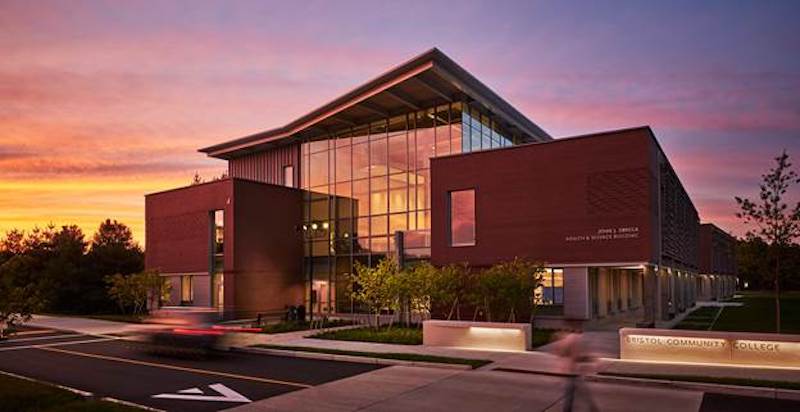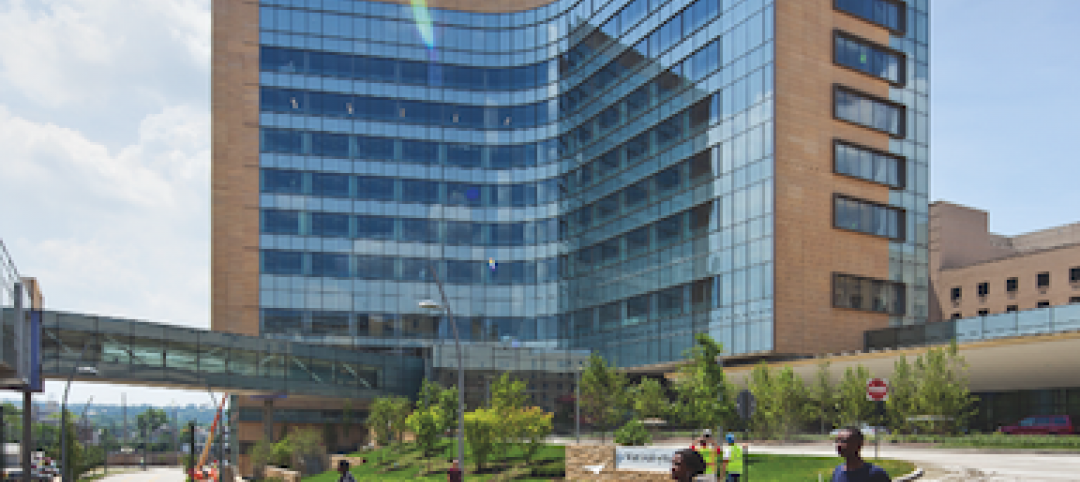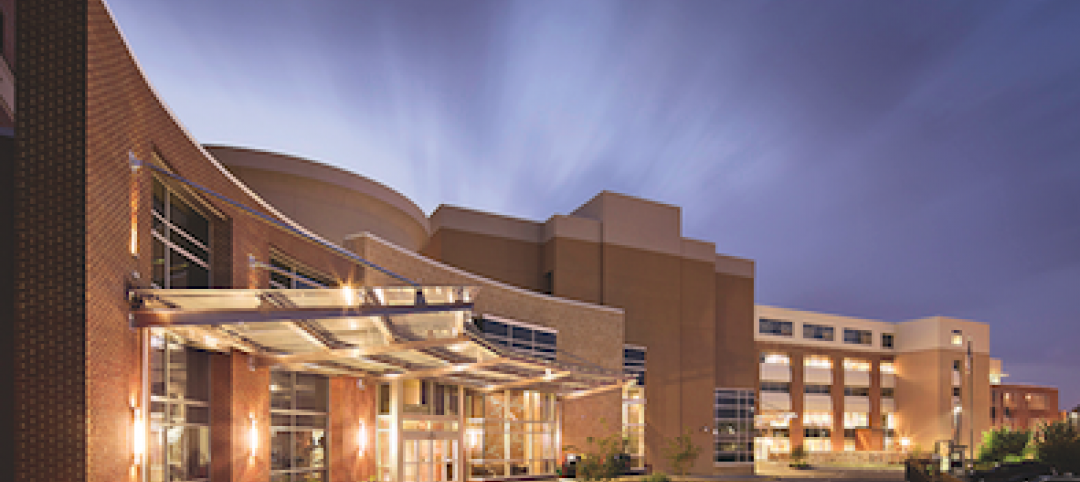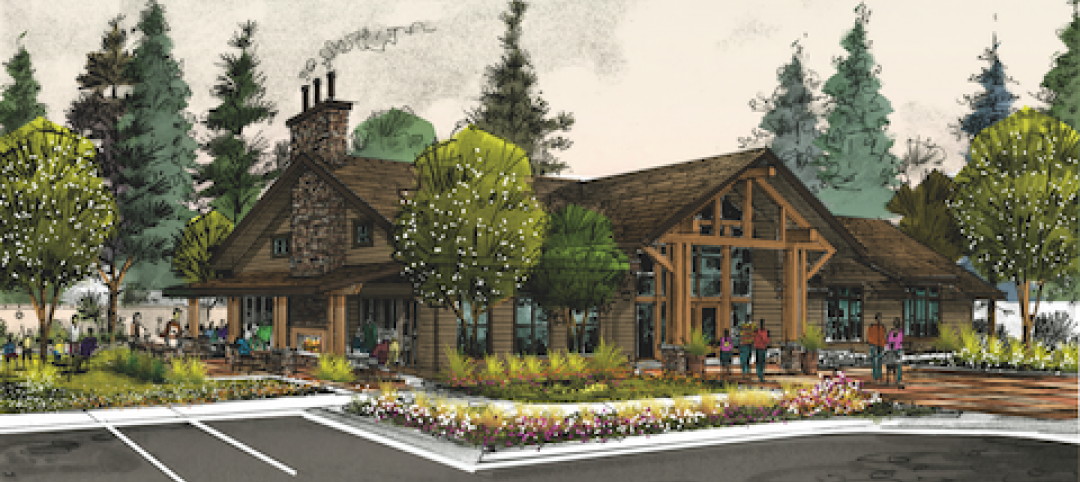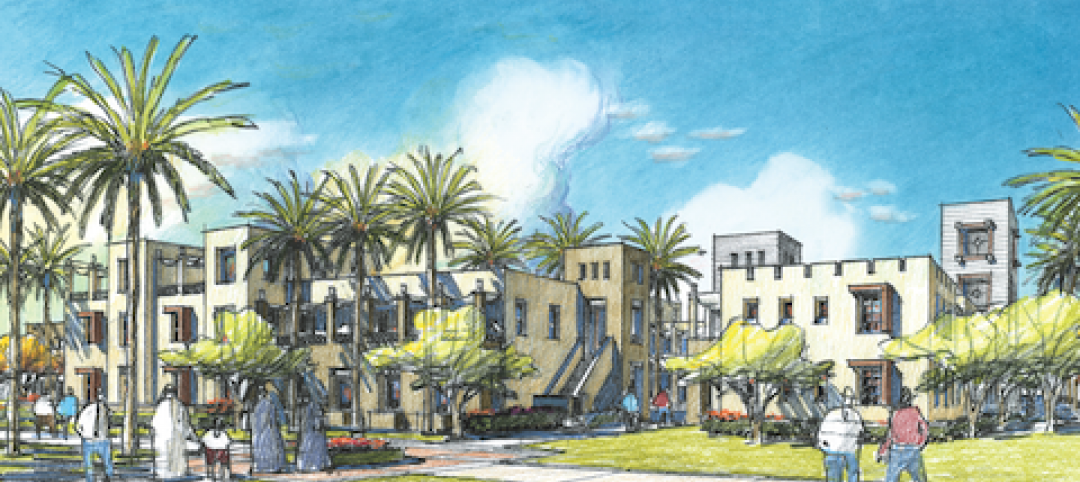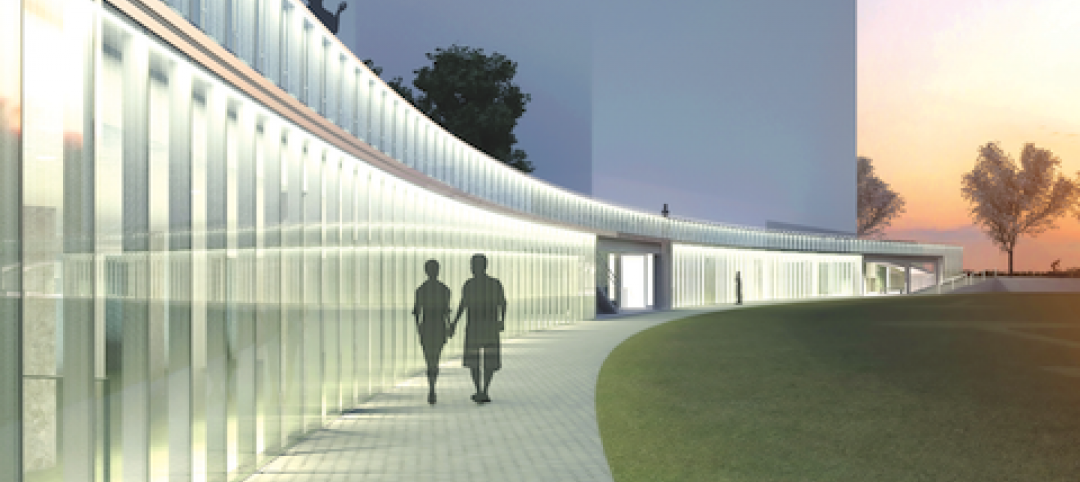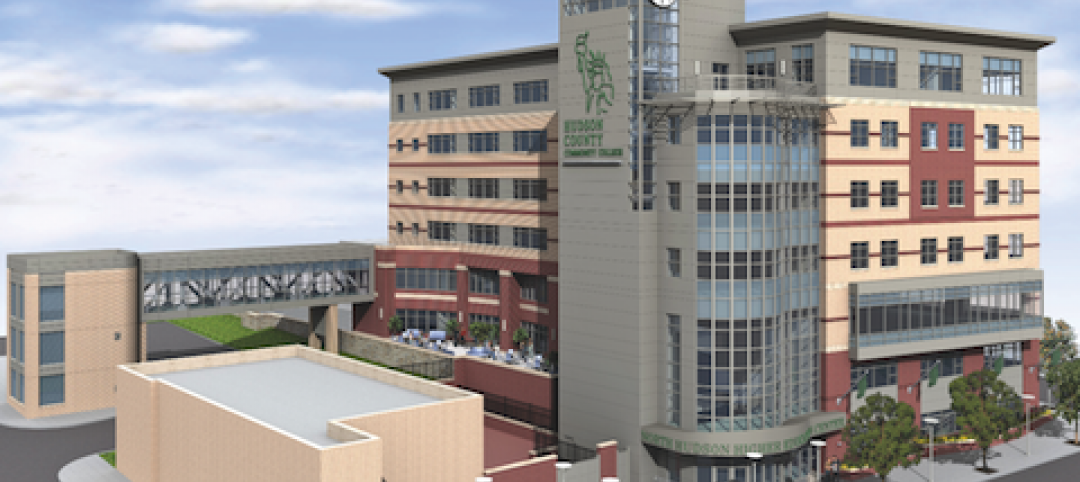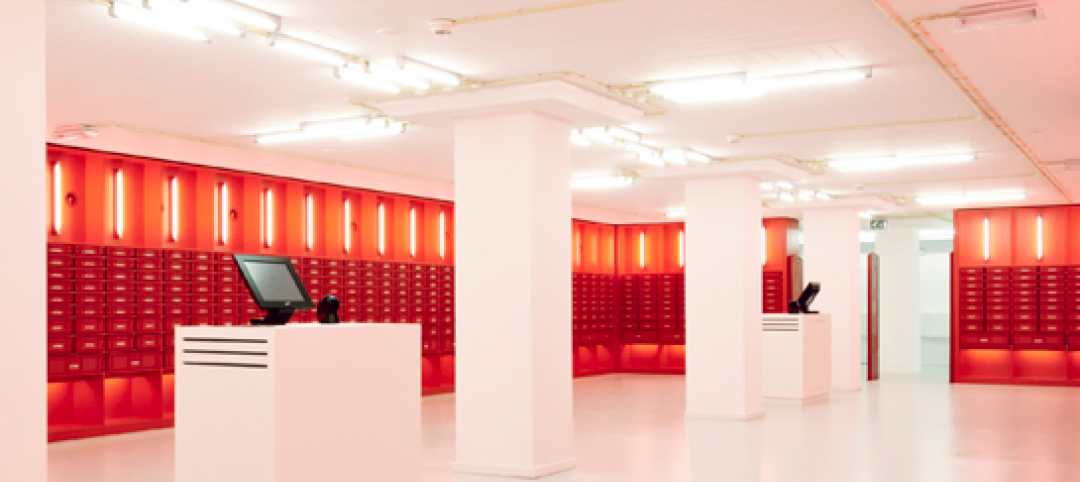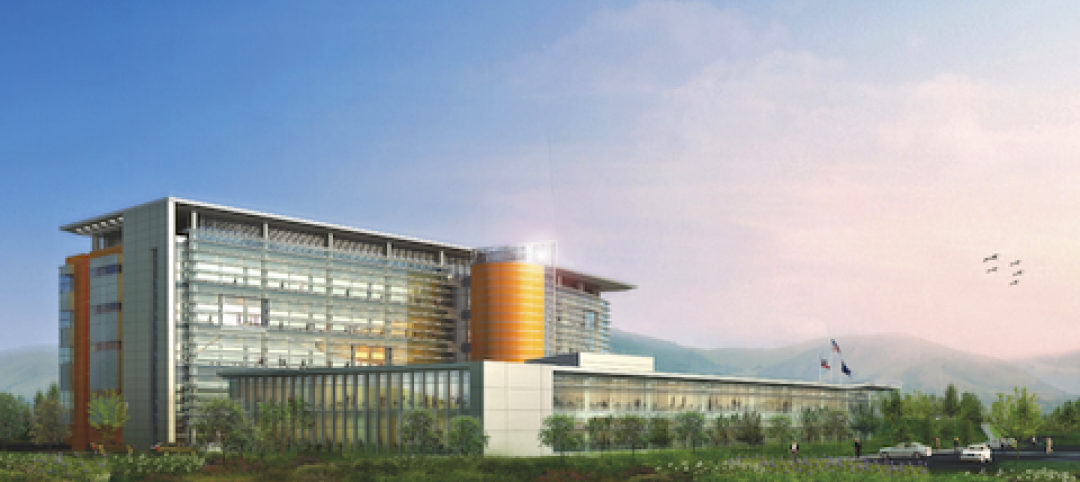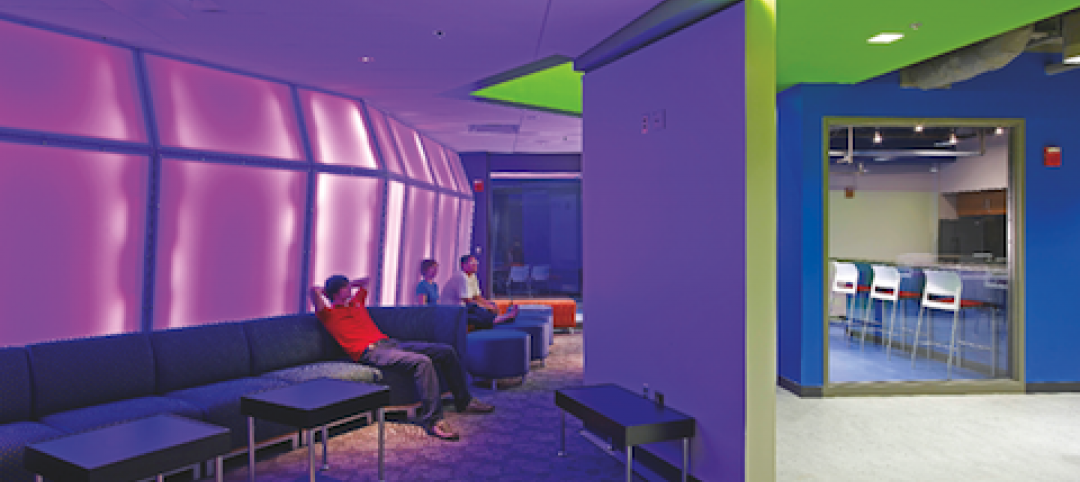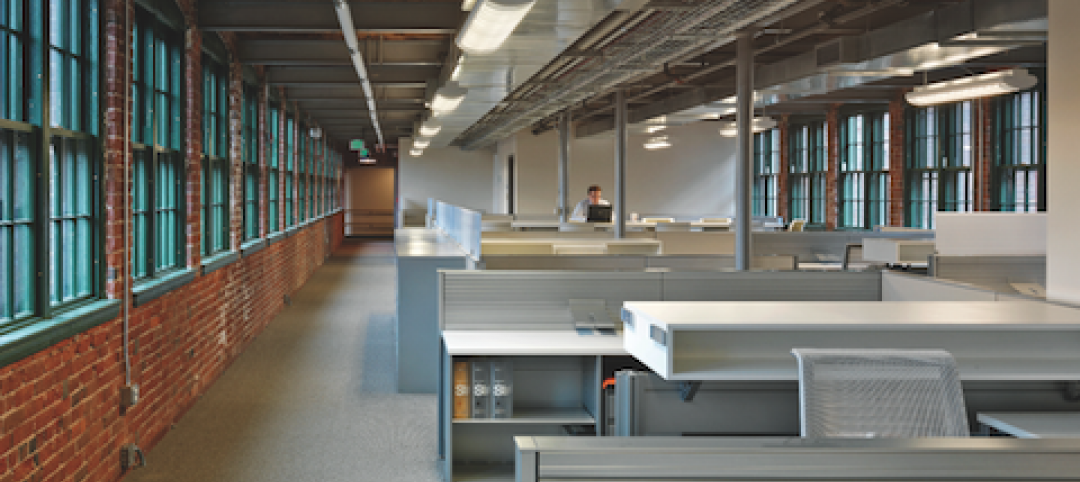The John J. Sbrega Health and Science Building, which opened last fall on the Fall River, Mass., campus of Bristol Community College (BCC), claims to be the largest zero net energy (ZNE) classroom and science lab building in the Northeast.
The 50,600-sf building, whose construction cost was $31.5 million, consists of two occupied floors and a mechanical penthouse. Its teaching laboratories, community spaces and interactive classrooms, are joined by a shared atrium that serves as a “learning commons” and student living room.
The Building Team on this project included the civil engineering and construction firm Bond (GC), Bard, Rao + Athanas Consulting Engineers (engineer), and Sasaki Associates (architect).
To achieve zero net energy goals in a facility with a large amount of energy consuming lab space, the design incorporates a large solar array field over the adjacent parking lot that works in tandem with a PV array on the roof of the building. The new facility is projected to use less than 20% of the new array and no fossil fuels for heating and cooling.
The Building Team also installed geothermal wells 500 feet below ground level that feed a ground source heat pump. This was coupled with an air source heat pump to provide heating and cooling to the building. In addition, 12 of the building’s 16 fume hoods filter and return air to the space, rather than exhausting it out into the atmosphere.
Significantly, the ZNE design was achieved without increasing the budget. The building will serve as an important benchmark for future campus development and a model for other institutions.
“We are especially proud of this new building for BCC, which has already received several awards for its innovative approach to sustainable construction,” said Robert Murray, Bond’s President. “It’s one of the first ZNE science laboratory buildings built in the Northeast and well equipped for the ever-changing needs of the college’s health and science curriculum.”
BCC, which was chartered in 1965, is one of the fastest-growing community colleges in the Northeast. The school offers more than 150 programs that include nursing, dental hygiene, biotechnology, microbiology, chemistry, and biology. The Health and Science Building—named after BCC’s president of 16 years, John J. Sbrega, who is retiring next August—brings much-needed new space to the burgeoning campus. It is LEED Platinum certified, and can be seen as a starting point for the college’s goal of achieving carbon neutrality by 2050.
On its website, Bond notes that one of this project’s challenges was the installation of three prefabricated mechanical room pieces, each 10 to 15 tons, that needed to be rigged through the structure, and placed during ongoing construction. Offsite commissioning, including control testing, allowed for plug and play of the mechanical room as well as critical control sequences.
Related Stories
| Oct 13, 2010
Prefab Trailblazer
The $137 million, 12-story, 500,000-sf Miami Valley Hospital cardiac center, Dayton, Ohio, is the first major hospital project in the U.S. to have made extensive use of prefabricated components in its design and construction.
| Oct 13, 2010
Hospital tower gets modern makeover
The Wellmont Holston Valley Medical Center in Kingsport, Tenn., expanded its D unit, a project that includes a 243,443-sf addition with a 12-room operating suite, a 36-bed intensive care unit, and an enlarged emergency department.
| Oct 13, 2010
Apartment complex will offer affordable green housing
Urban Housing Communities, KTGY Group, and the City of Big Bear Lake (Calif.) Improvement Agency are collaborating on The Crossings at Big Bear Lake, the first apartment complex in the city to offer residents affordable, eco-friendly homes. KTGY designed 28 two-bedroom, two-story townhomes and 14 three-bedroom, single-story flats, averaging 1,100 sf each.
| Oct 13, 2010
Residences bring students, faculty together in the Middle East
A new residence complex is in design for United Arab Emirates University in Al Ain, UAE, near Abu Dhabi. Plans for the 120-acre mixed-use development include 710 clustered townhomes and apartments for students and faculty and common areas for community activities.
| Oct 13, 2010
Community center under way in NYC seeks LEED Platinum
A curving, 550-foot-long glass arcade dubbed the “Wall of Light” is the standout architectural and sustainable feature of the Battery Park City Community Center, a 60,000-sf complex located in a two-tower residential Lower Manhattan complex. Hanrahan Meyers Architects designed the glass arcade to act as a passive energy system, bringing natural light into all interior spaces.
| Oct 13, 2010
Community college plans new campus building
Construction is moving along on Hudson County Community College’s North Hudson Campus Center in Union City, N.J. The seven-story, 92,000-sf building will be the first higher education facility in the city.
| Oct 13, 2010
Bookworms in Silver Spring getting new library
The residents of Silver Spring, Md., will soon have a new 112,000-sf library. The project is aiming for LEED Silver certification.
| Oct 13, 2010
County building aims for the sun, shade
The 187,032-sf East County Hall of Justice in Dublin, Calif., will be oriented to take advantage of daylighting, with exterior sunshades preventing unwanted heat gain and glare. The building is targeting LEED Silver. Strong horizontal massing helps both buildings better match their low-rise and residential neighbors.
| Oct 12, 2010
Owen Hall, Michigan State University, East Lansing, Mich.
27th Annual Reconstruction Awards—Silver Award. Officials at Michigan State University’s East Lansing Campus were concerned that Owen Hall, a mid-20th-century residence facility, was no longer attracting much interest from its target audience, graduate and international students.
| Oct 12, 2010
The Watch Factory, Waltham, Mass.
27th Annual Reconstruction Awards — Gold Award. When the Boston Watch Company opened its factory in 1854 on the banks of the Charles River in Waltham, Mass., the area was far enough away from the dust, dirt, and grime of Boston to safely assemble delicate watch parts.


